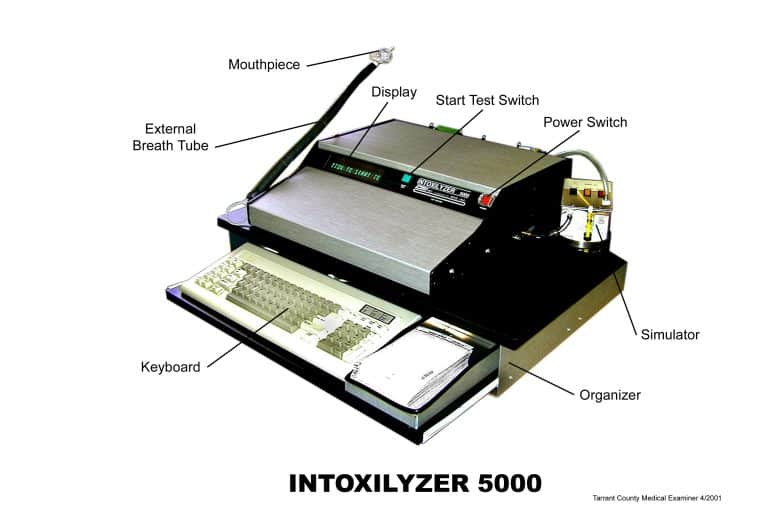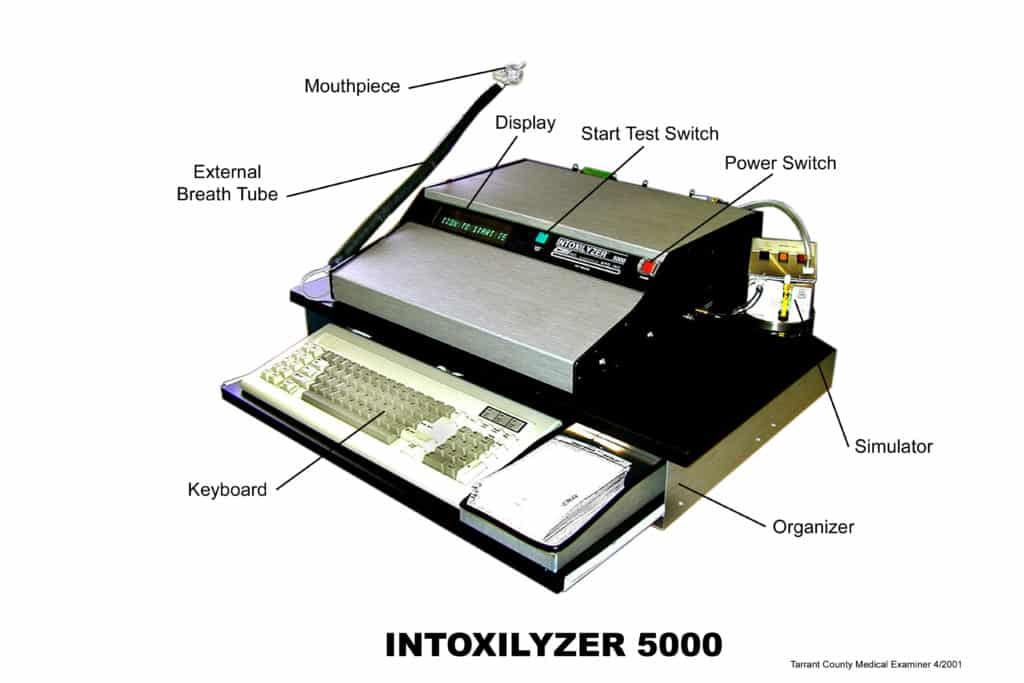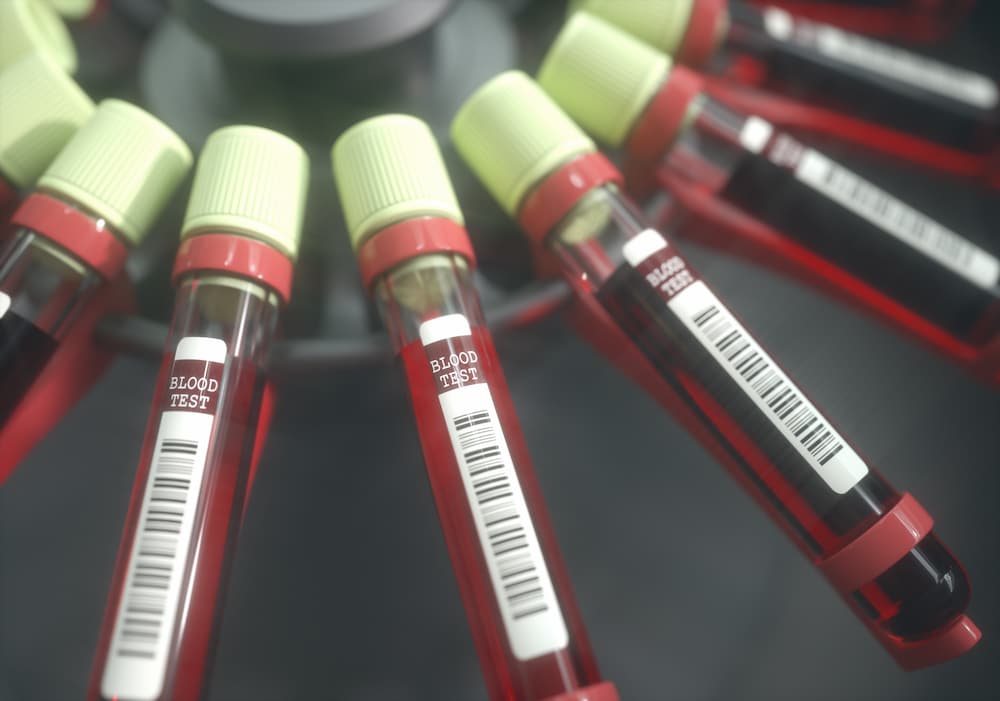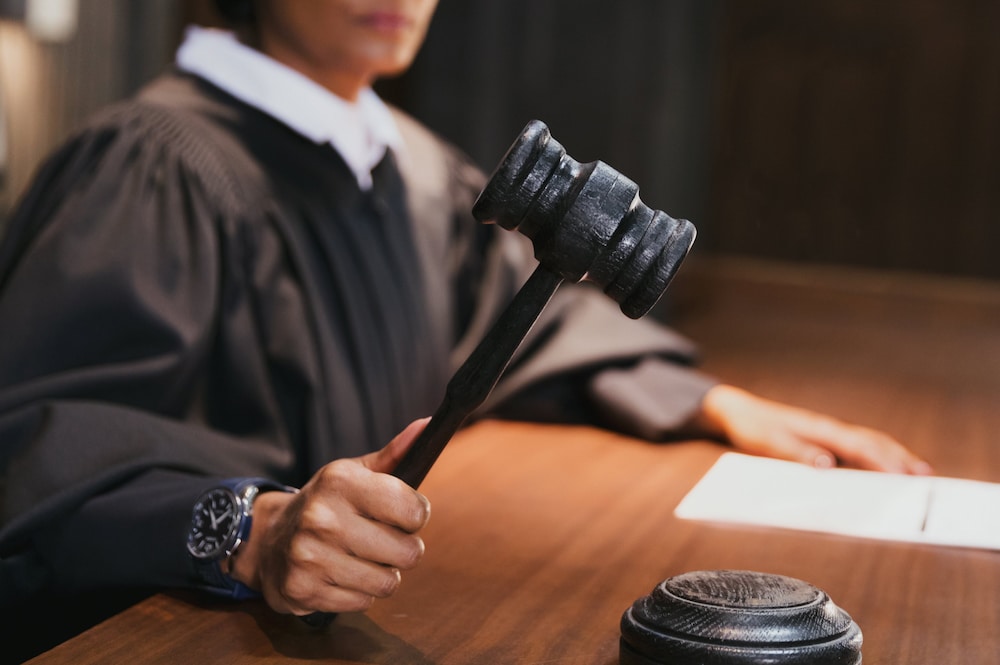Very few law enforcement offices in Texas are using the Intoxilyzer 5000 EN devices and virtually all have adopted the Intoxilyzer 9000 machine.
However, some of the the 5000 EN machines are still in use.
Police say that the Intoxilyzer 5000 EN will show only a result of the breath tested and that breath only comes from deep lung air.
Non-police scientists disagree.
They say that the Intoxilyzer often misreads other commonly found substances in human breath and erroneously causes the device to read high.
Of particular importance are the following facts:
-
- DWI alcohol concentration law says you are intoxicated when you have a .08 concentration in your breath, but it does not say “.08 as determined by Intoxilyzer 5000 EN.” This fact means that no judge or jury is required to believe that an Intoxilyzer result of .08 or more is accurate or reliable.
- Neither the manufacturer nor the Texas Department of Public Safety (DPS) will allow anyone, other than law enforcement personnel, to test either the device’s accuracy or its reliability. It is generally understood in science that for a procedure to be accepted as accurate and reliable, it must be open and available for the scientific community to test and retest.
- The manufacturer says it does not warrant that the Intoxilyzer is fit for any particular purpose. This fact clearly is an implicit admission by the manufacturer that its machine is not even warranted as accurate and reliable for breath testing.
- The Intoxilyzer is capable of breath preservation; however, DPS does not require the breath specimens to be saved. The preservation cost would be less than $2 per test and would allow an opportunity for a person charged with DWI to check the accuracy of the sample. Accordingly, if you think the test is inaccurate, there is no way to scientifically recheck the sample additionally tested.
- The Intoxilyzer’s working design is premised on the assumption that every person tested is exactly the average person. All persons are not exactly average! Human beings come in all different sizes, weights, ages, muscle tones, lung capacities, alcohol tolerances, temperatures, hematocrit levels (amount of solids in the blood), and blood/breath ratios (the number of times an item appears in the blood vs. the number of times the same item appears in the breath).
The Intoxilyzer 5000 and The Law of Average
Automatic and undetected error can be illustrated by simply recognizing that the person tested is not exactly average.
In this regard, it should be noted that the Intoxilyzer 5000 EN assumes a blood/breath ratio of 2,100/1 (i.e., 2,100 parts of alcohol in the blood for every 1 part of alcohol in the breath) for every person tested.
Here, it can be noted that a majority of persons have a blood/breath ratio of 2,100/1 or greater.
The Intoxilyzer 5000 EN’s assumption will not be prejudiced against persons with a blood/breath ratio of 2,100/1 or greater.
However, the test will be prejudiced against persons with a lower blood/breath ratio, because the Intoxilyzer will erroneously read too high of an alcohol concentration result, thus potentially causing a person who should test at .04, .05, .06, etc., to actually test at .08, .11, .12, etc.
Of particular import here is the fact that scientists have documented persons with blood/breath ratios as low as 1,100/1.
Different Bodies
This same type of prejudice also occurs where the person tested is not exactly average with respect to other bodily functions: muscle development, temperature, hematocrit level, etc.
Moreover, since the machine was built by humans, is serviced by humans, and is operated by humans, it is subject to human error just like all other machines.
The above facts conclusively demonstrate that the Intoxilyzer, even if it is properly working and is being properly operated, because the person being tested is not exactly average, can label an innocent person as guilty.










